AI Entertainment
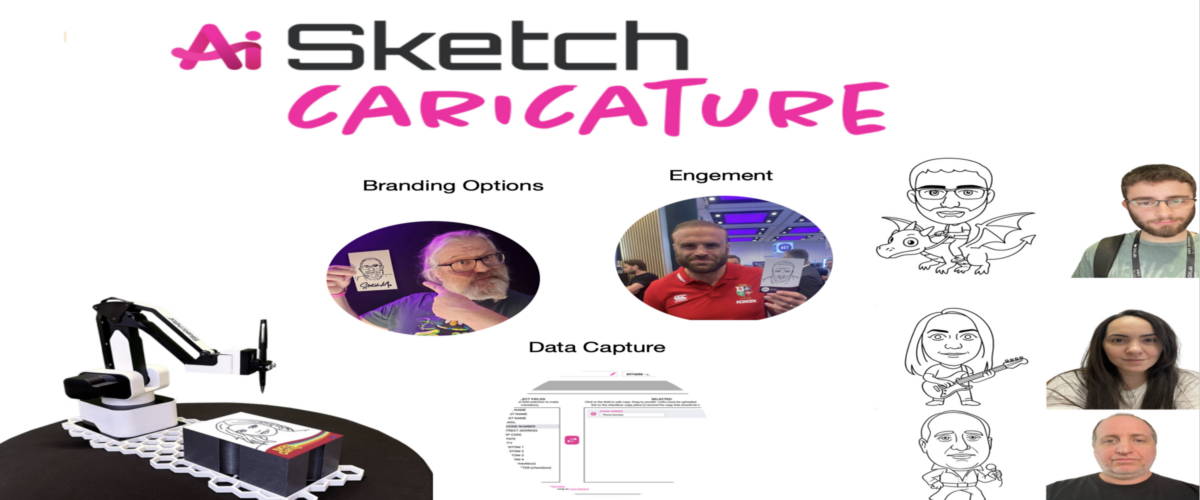
Trusted By




Check Out Our Cool AI Entertainemnt Ideas Here
AI Entertainment: The Future of Guest Engagement
Step into the future of live event entertainment with AI Entertainment – a dynamic suite of cutting-edge, interactive experiences designed to captivate, surprise, and delight. We offer three standout activations: Sketch Robot AI, Fortune AI, and Line to Life AI – each delivering unforgettable moments for guests and unmatched value for brands.

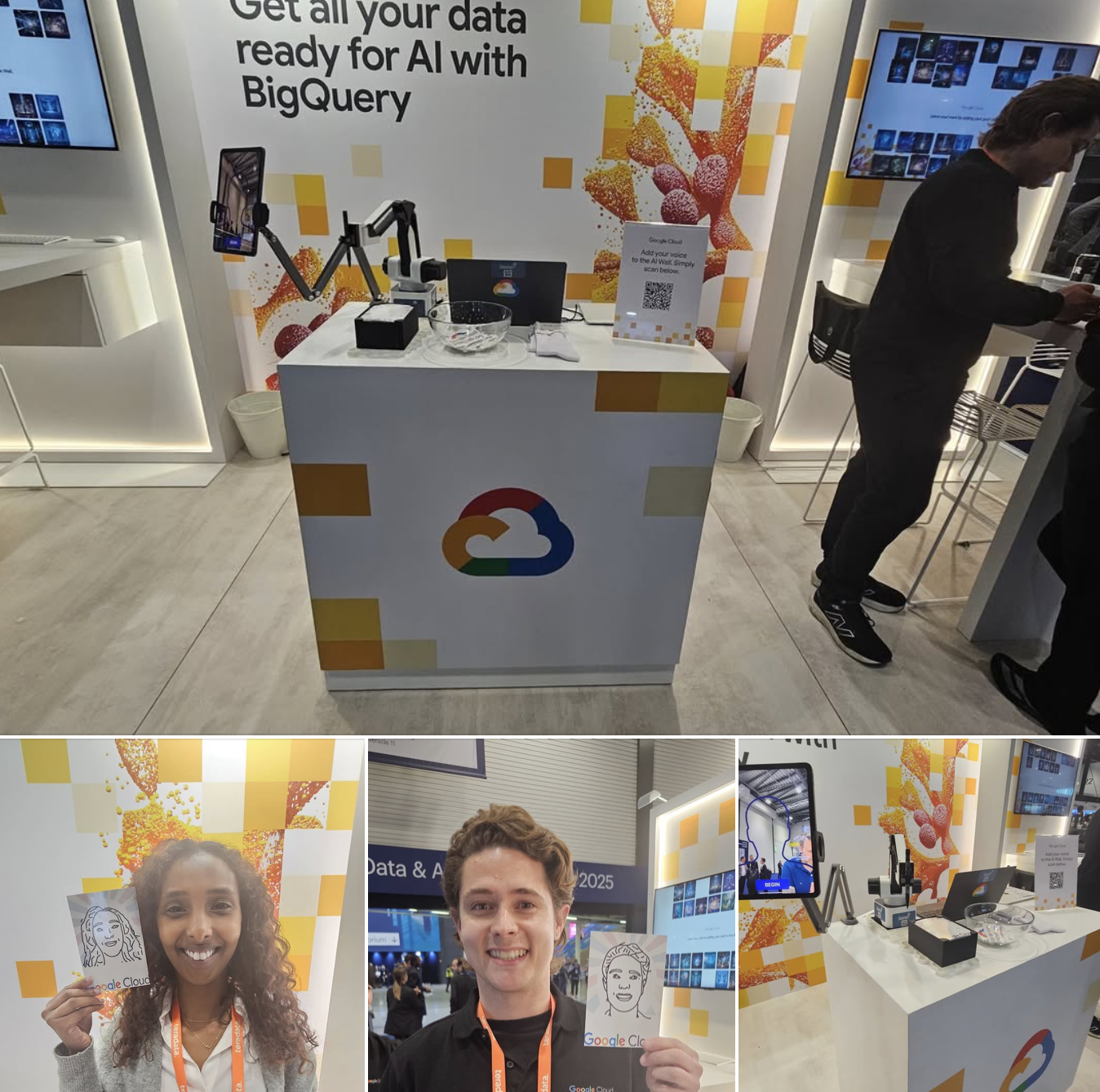
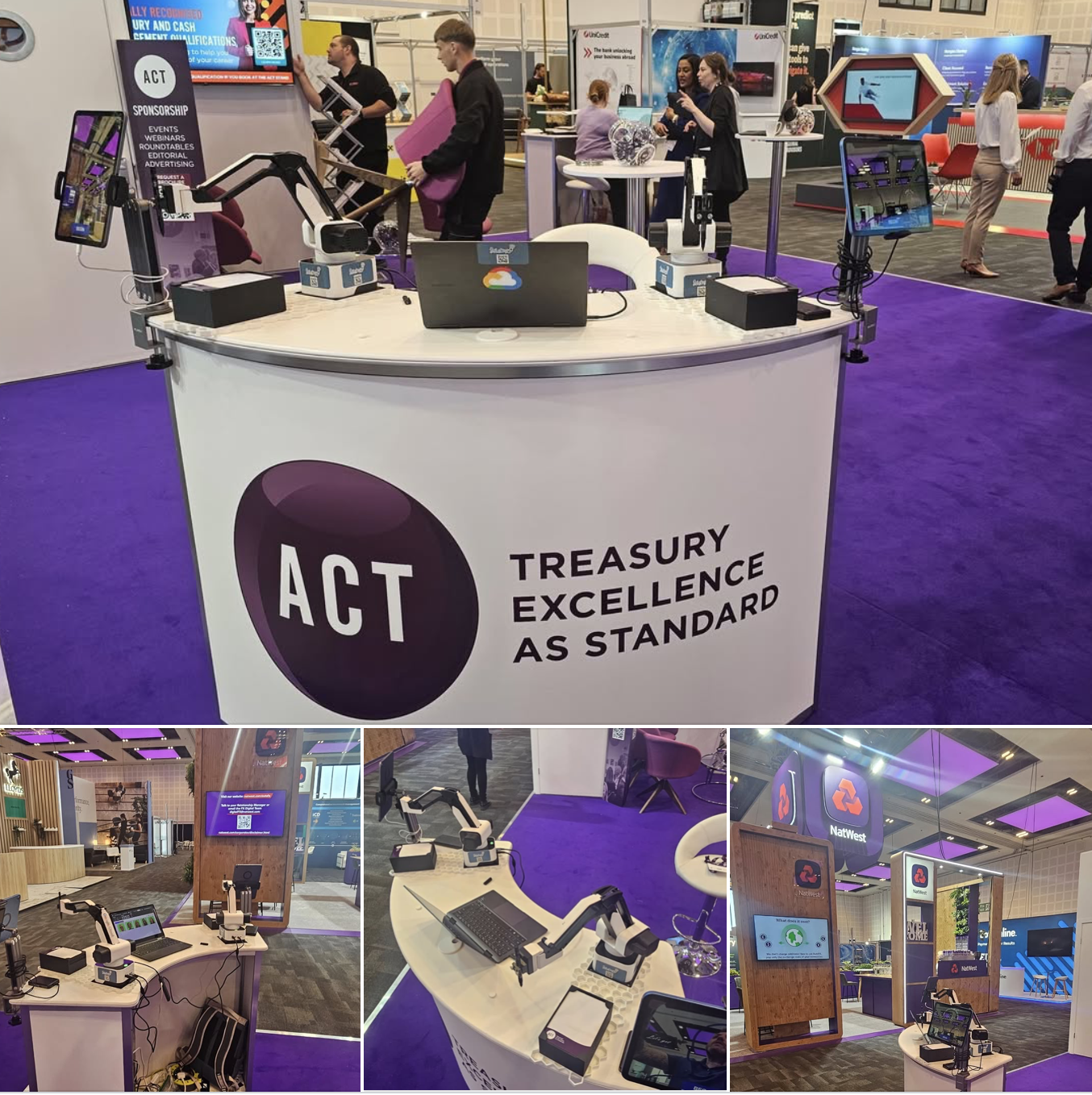
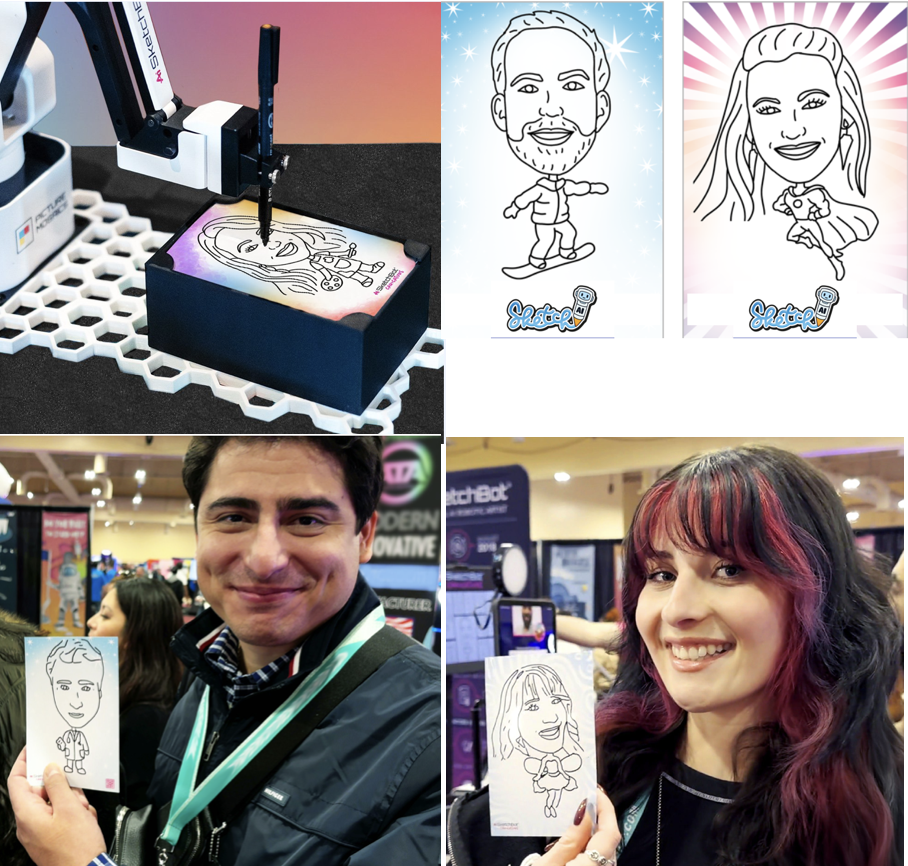
Sketch Robot AI
creates fast, personalised digital sketches of your guests using advanced facial recognition and machine learning. It draws crowds instantly and leaves them with a branded, one-of-a-kind digital keepsake. The live sketching process is as entertaining to watch as the final result is to receive – making it perfect for trade shows, product launches, private events, and everything in between. Sketch Me Bot Hire
For something a little more mystical, Fortune AI blends personality analysis with playful prediction. This experience generates AI-powered fortunes based on guest input or interaction, offering a fun twist that sparks curiosity and conversation. Guests receive a digital “fortune” that’s ideal for social sharing and leaves them talking long after the event.
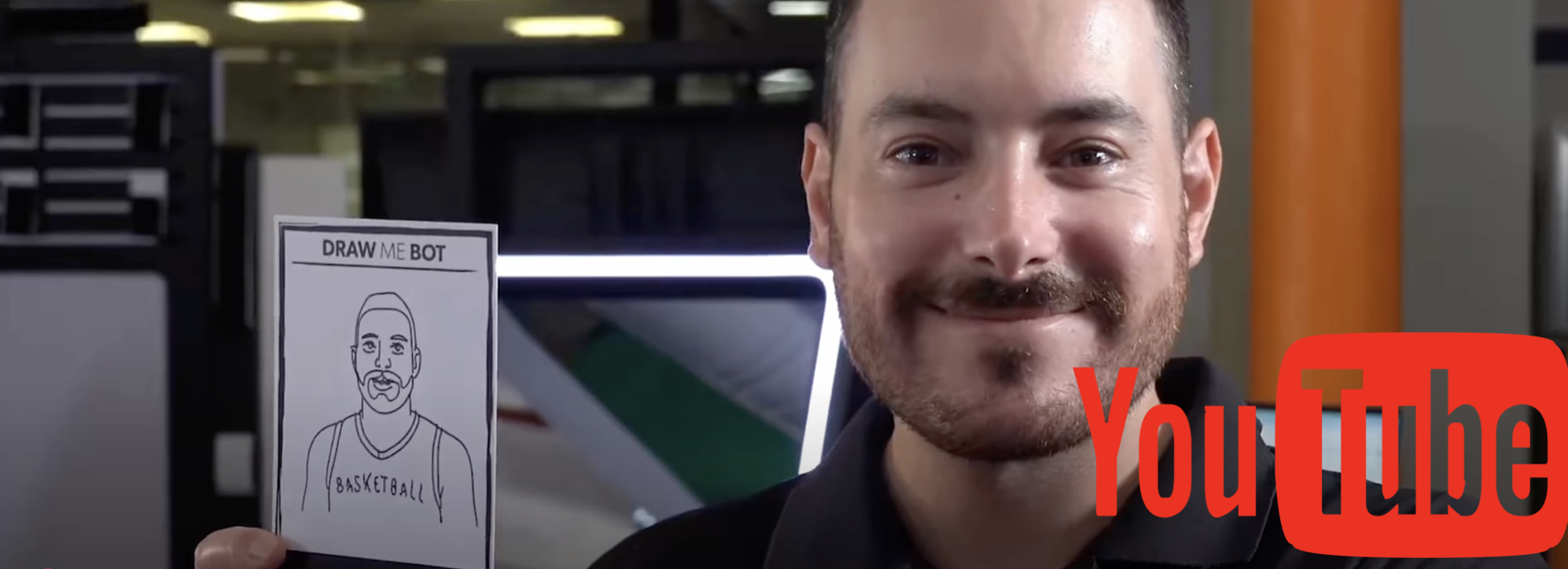
Line to Life AI


transforms a simple doodle or outline into a fully rendered, AI-generated image. It’s highly engaging and encourages hands-on interaction, especially popular at creative brand activations and experiential zones. The result? A unique, AI-enhanced artwork your guests can proudly share or take home.
All our AI experiences are available for nationwide hire, fully managed and tailored to your event theme or brand. Whether you’re hosting a corporate gathering in London, a festival in Manchester, or a VIP launch in Edinburgh, AI Entertainment brings futuristic fun, seamless tech, and unforgettable guest engagement to your doorstep. By integrating AI to meet evolving consumer demand, we ensure that our offerings are always at the cutting edge of innovation.
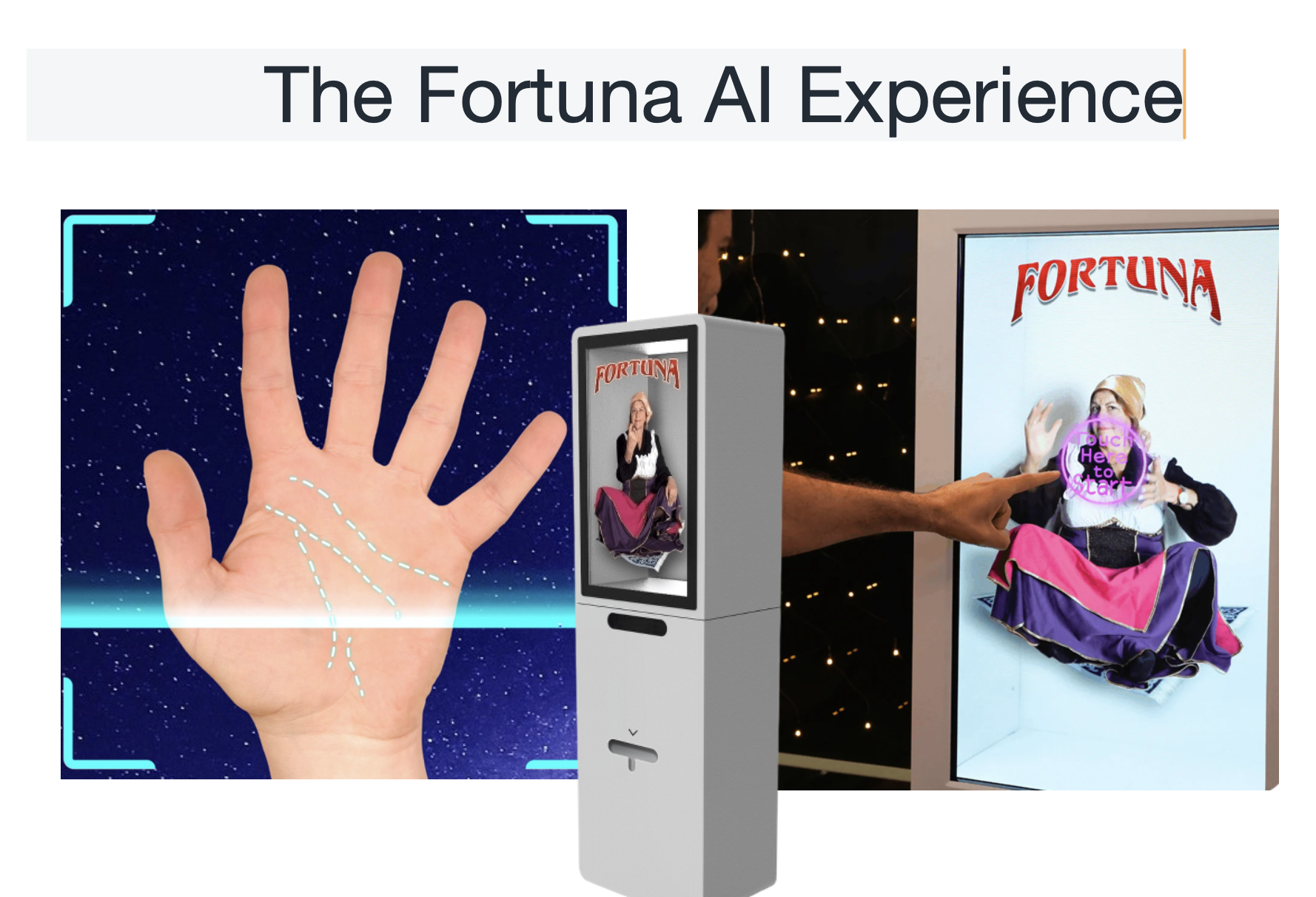
Step into the future with Fortune AI, an interactive holographic experience that fuses cutting-edge artificial intelligence, immersive storytelling, and personalised photo entertainment. Inspired by the iconic Zoltar fortune teller machines, Fortuna AI offers AI-powered palm readings, futuristic digital transformations, and custom-printed keepsakes.
Guests step up to the booth, scan their hand using a special scanner, and then take a photo.
The AI reads the lines of their palm (using real palm reading principles — not random!) and generates a personalized fortune based on it. Then, it transforms their photo into a stunning AI-generated portrait.
The magic of the experience is really in the interactive holograms, the hand scan, the AI fortune creation, and the customizable prints — all coming together in one unforgettable moment. And yes, everything is customisable: the fortunes, the designs, the branding, the workflow, and more
AI Trading Cards

Turn your guests into sports legends in an instant! Whether it's basketball, soccer, football, or a custom theme of your choice, this fully customizable feature seamlessly aligns with your event's style and branding.
Endless Customization: Choose from our ready-made presets or design your own to match any theme, brand, or creative vision.
⚡ Seamless & Speedy: AI-driven automation paired with a cutting machine delivers professional-quality results in minutes!
Enhance your photo booth business with a premium, in-demand service that maximizes your revenue.
AI Trading Cards Available to hire Nationwide
Choose Your Theme To Match Your Brands Event
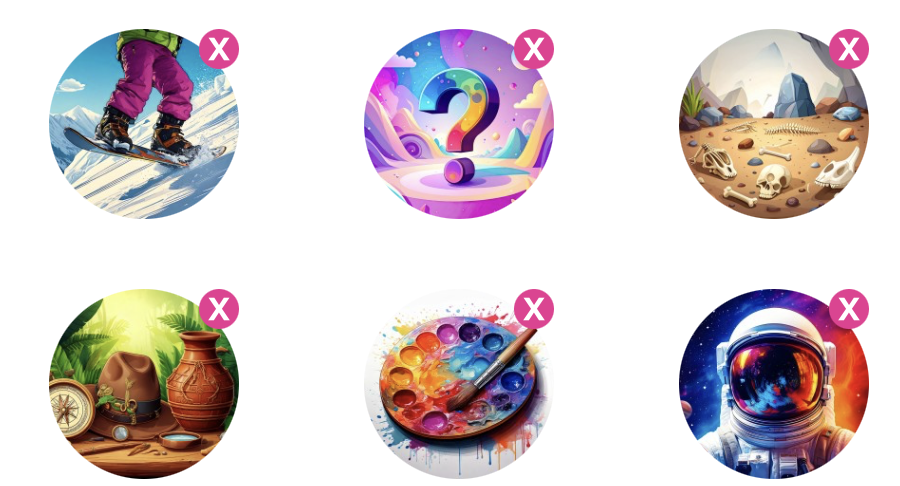
The media and entertainment sector is rapidly adopting AI technologies to enhance efficiency, personalize user experiences, and enable targeted marketing strategies. This transformation is reshaping the industry's landscape and meeting evolving consumer demands.
Introduction to AI in Entertainment
The media and entertainment industry is undergoing a significant transformation with the integration of artificial intelligence (AI). AI is being used to enhance various aspects of the entertainment industry, including content creation, audience engagement, and marketing strategies. The use of AI tools and machine learning algorithms is becoming increasingly prevalent in the industry, enabling entertainment companies to provide more personalized and immersive experiences for their audiences. With the help of AI-powered tools, companies can analyze user behavior and audience preferences to create targeted marketing campaigns and optimize streaming quality.
AI Tools and Technology
The entertainment sector is leveraging AI-driven tools to streamline content generation and production processes. Generative AI tools are being used to create hyper-realistic visual effects, music generation, and even entire scripts. Media and entertainment companies are also utilizing AI algorithms to analyze historical data and identify trends, enabling them to make more informed decisions about content creation and box office success. Additionally, AI-generated works are being used in various forms of media, including video games and films. Companies like Wonder Dynamics are using AI to create realistic character animation and visual effects.
Content Creation and Generation
The use of AI in the entertainment industry is revolutionizing the creative process. Creative professionals are now able to focus on high-level creative decisions, while AI tools handle more mundane tasks such as video editing and content moderation. AI-generated music is also becoming increasingly popular, with many entertainment companiesusing it to create personalized playlists for their audiences. Furthermore, AI algorithms are being used to analyze user preferences and create content generation models that can predict what type of content will be successful. This enables entertainment companies to create content that resonates with their target audience.
Audience Engagement and Analysis
Audience engagement is a critical aspect of the entertainment industry, and AI-powered tools are being used to enhance this experience. AI-driven tools can analyze audience behavior and provide valuable insights into what type of content resonates with different audience segments. This enables entertainment companies to create targeted marketing campaigns and optimize their content creation strategies. Additionally, AI algorithms can be used to analyze sentiment analysis and provide real-time feedback to entertainment companies, enabling them to make adjustments to their content and marketing strategies.
Future of AI in Entertainment
The future of AI in entertainment is exciting and rapidly evolving. Entertainment companies are leveraging
AI too
lsand machine learning algorithms to create more immersive and personalized experiences for their audiences. The use of deepfake technology and large language models is becoming increasingly prevalent, enabling entertainment companies to create hyper-realistic visual effects and AI-generated content. Furthermore, AI algorithms are being used to analyze energy consumption and optimize data centers, enabling entertainment companies to reduce their environmental impact. As the entertainment industry continues to evolve, it is likely that AI will play an increasingly crucial role in shaping the future of content creation and audience engagement.
Embracing Technology in Event Hire: The Future of AI, Data Protection, and Innovation
Introduction
The event industry has undergone a significant transformation with the advent of technology. From traditional setups to tech-driven experiences, the integration of artificial intelligence (AI), big data, and advanced computing has revolutionized how events are planned, executed, and experienced. This article delves into the multifaceted aspects of technology-based event hire, emphasizing the roles of AI, data protection, and innovation.
1. The Rise of Technology-Based Event Hire
Historically, event planning relied heavily on manual processes and human intuition. However, the digital age has ushered in tools and platforms that streamline operations, enhance attendee engagement, and provide valuable insights. Technology-based event hire encompasses various services, including virtual reality experiences, interactive displays, and AI-driven solutions, offering organizers more control and flexibility.
2. Artificial Intelligence in Events
AI’s integration into events has opened new avenues for personalization and efficiency. Chatbots assist attendees with queries, machine learning algorithms analyze attendee behavior to tailor experiences, and facial recognition streamlines check-ins. For instance, AI can identify patterns in attendee preferences, allowing organizers to adjust content and offerings in real-time, enhancing overall satisfaction.
3. Data Protection and Privacy
With the increased reliance on data comes the responsibility of protecting it. Events collect vast amounts of personal information, from registration details to behavioral data. Ensuring compliance with data protection regulations, such as the General Data Protection Regulation (GDPR), is paramount. Implementing robust security measures and transparent data policies builds trust and safeguards against potential breaches.
4. Big Data and Analytics
Big data analytics empowers event organizers to make informed decisions. By analyzing large datasets, organizers can identify trends, measure engagement, and optimize marketing strategies. For example, understanding which sessions had the highest attendance or which marketing channels drove the most registrations can inform future event planning.
5. Infrastructure and Systems
A robust technological infrastructure is essential for seamless event execution. This includes reliable internet connectivity, integrated software platforms, and scalable systems that can handle large volumes of data and user interactions. Cloud computing plays a pivotal role, offering scalable resources and facilitating real-time data access and collaboration.
6. Communication and Engagement
Technology enhances communication before, during, and after events. Mobile apps provide schedules, speaker information, and networking opportunities. Social media platforms amplify event reach, while live streaming and virtual participation options cater to global audiences. Interactive tools like live polls and Q&A sessions foster engagement and provide immediate feedback.
7. Innovation and Future Trends
The future of event hire is poised to embrace even more innovative technologies. Augmented reality (AR) and virtual reality (VR) can create immersive experiences, while AI-driven personalization will tailor content to individual preferences. Hybrid events, combining in-person and virtual elements, are becoming the norm, expanding reach and inclusivity.
8. Ethical Considerations and Challenges
While technology offers numerous benefits, it also presents challenges. Ensuring ethical use of AI, addressing data privacy concerns, and maintaining human elements in automated processes are critical. Organizers must balance innovation with responsibility, ensuring technology enhances rather than detracts from the human experience.
Conclusion
Technology-based event hire represents a significant shift in the events industry, offering enhanced experiences, operational efficiency, and valuable insights. By embracing AI, ensuring data protection, and fostering innovation, event organizers can create memorable and impactful events that resonate with diverse audiences.
9. AI-Powered Applications in Practice
AI-powered tools are no longer limited to theoretical discussions or niche applications. In real-world event settings, they are transforming guest interaction, logistics, and even content creation. For example, companies now use AI to generate event schedules based on attendee interests, to auto-translate sessions into multiple languages in real time, and to customize promotional material based on past behaviors. These capabilities ensure that each attendee has a unique and tailored experience, increasing satisfaction and engagement.
Moreover, the deployment of AI at events offers significant cost and time savings. Automating repetitive tasks such as email confirmations, registration processing, and post-event surveys reduces human error and operational costs. AI systems can also help monitor crowd flow and manage queues dynamically, offering live suggestions to prevent congestion.
10. The Role of Data in Enhancing Experiences
Data remains at the heart of technological innovation in events. The collection and analysis of user data allow for precise tailoring of services. For example, understanding the most popular booths at a trade fair or the exact time users drop off during a keynote allows organizers to make timely and informed decisions.
Feedback loops become critical in this context. By processing both structured and unstructured data, event platforms can refine the experience in real time and offer actionable insights post-event. The right balance between data utility and privacy must be struck—something that’s especially important given heightened public awareness around personal information misuse.
11. Leveraging Technology Across Different Event Types
From small-scale corporate meetings to international exhibitions, technology’s footprint is universal. In conferences, AI-generated note-taking tools help attendees focus without the worry of missing important points. In entertainment-focused events, augmented reality scavenger hunts or AI-generated music sets add a futuristic flair. Weddings and private parties now also make use of virtual guestbooks, photo booths with facial recognition, and mood-setting AI-curated playlists.
Each event type has unique requirements, but the underlying technology often remains adaptable. For example, the same AI software used to generate engagement insights for a product launch can be tweaked to monitor sentiment at a live concert.
12. Language and Communication Technology
Multilingual AI solutions are bridging the gap across audiences from different countries and cultural backgrounds. Natural language processing (NLP) allows for real-time translations, sentiment analysis, and conversational AI that can respond to guests in their native tongue. This creates a more inclusive atmosphere and ensures that communication barriers do not hinder the event experience.
Additionally, AI tools that analyze voice and tone can help determine emotional engagement, enabling organizers to adjust their delivery and content style accordingly. The convergence of AI, linguistics, and cultural understanding is forming the next frontier of personalized communication at scale.
13. Security, Ethics, and Data Protection
Security remains a critical concern when leveraging tech-based solutions for events. Every piece of data collected—from email addresses to facial recognition logs—requires secure handling. Data protection laws such as GDPR in the EU and CCPA in California lay the foundation for compliance, but ethical considerations go beyond legality.
Organizations must communicate their data usage policies clearly and ensure transparency in all AI-driven interactions. Offering users the ability to opt-out or customize their data sharing preferences is becoming an industry standard.
Furthermore, discussions around AI bias, surveillance, and consent continue to shape how technologies are deployed. The challenge is to harness the power of AI and big data responsibly, ensuring that innovation does not come at the cost of trust or personal freedom.
14. Real-World Case Studies
Several high-profile events have successfully integrated AI and advanced tech tools. For instance, tech summits in Paris and London used AI bots for sketching attendees’ portraits live—a blend of art and technology that provided a unique keepsake. Major brands like Google and Microsoft deploy AI-powered audience analysis tools to optimize their product showcases and ensure high engagement levels.
Sports events now employ predictive AI to anticipate crowd behavior and dynamically adjust security measures. Meanwhile, music festivals use AI to manage scheduling, stage time distribution, and even playlist personalization based on crowd demographics.
15. The Human-AI Collaboration
Despite the rapid rise of automation, the role of human input remains vital. AI excels in processing large datasets and performing repetitive tasks quickly. However, human creativity, emotional intelligence, and ethical reasoning are irreplaceable. The best events combine the power of AI with human insight—creating an atmosphere that is both efficient and emotionally resonant.
Event planners now act as tech curators, ensuring the correct blend of automation and personal touch. For example, while an AI chatbot may handle initial queries, a human concierge might step in for VIP requests. This hybrid approach balances scale with sensitivity.
16. Customization and Personalization at Scale
One of AI’s most valued contributions is the ability to personalize at scale. AI can curate agendas, recommend sessions, and suggest networking opportunities based on individual preferences. Users can also receive personalized push notifications and content updates throughout the event.
This level of customization increases the perceived value of the event and makes participants feel recognized and valued. In marketing campaigns, this personalization translates to higher open rates, better click-throughs, and stronger brand loyalty.
17. Challenges in Adopting Event Tech
While the advantages are clear, implementing technology in event hire is not without challenges. High initial costs, steep learning curves, and integration issues with legacy systems can hinder adoption. Moreover, not all venues are equipped with the infrastructure to support tech-heavy installations.
Training staff, ensuring user accessibility, and providing robust tech support are essential to a smooth rollout. The industry also faces a skills gap, where the demand for AI-literate event professionals exceeds supply.
18. The Role of Feedback and Continuous Improvement
Real-time feedback mechanisms are essential to optimize the event experience. Tools like sentiment tracking, heat maps, and instant polls help identify what works and what needs improvement. These insights inform future planning and contribute to long-term event success.
Additionally, AI tools can simulate user scenarios and test event layouts or content approaches before implementation. This predictive capability saves time, reduces costs, and enhances strategic decision-making.
19. Shaping the Future of Events
Looking forward, we can expect deeper integration of AI, machine learning, and immersive tech into every aspect of event planning and execution. From holographic presentations to AI-coordinated logistics, the future points to seamless, personalized, and data-driven experiences.
As generative AI improves, it will likely take a greater role in scripting, design, and interactive storytelling. Yet, the human element will always be at the core—bringing meaning and connection to the sophisticated systems we build.
Conclusion
Technology-based event hire is no longer a trend—it’s the standard. AI and related technologies are transforming every facet of the events industry, from planning and personalization to execution and post-event analysis. The integration of AI, big data, and secure systems offers powerful tools to engage audiences, streamline operations, and deliver unforgettable experiences.
As companies continue to explore the possibilities, it’s clear that the future of events lies in a harmonious blend of innovation, human connection, and ethical responsibility.